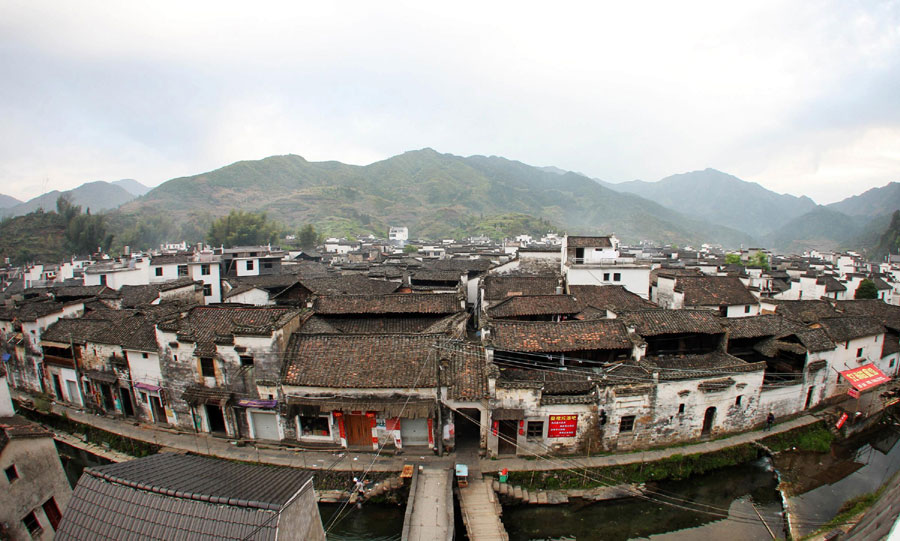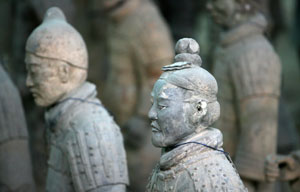
 'Taken 2' grabs movie box office crown
'Taken 2' grabs movie box office crown
 Rihanna's 'Diamonds' tops UK pop chart
Rihanna's 'Diamonds' tops UK pop chart
 Fans get look at vintage Rolling Stones
Fans get look at vintage Rolling Stones
 Celebrities attend Power of Women event
Celebrities attend Power of Women event
 Ang Lee breaks 'every rule' to make unlikely new Life of Pi film
Ang Lee breaks 'every rule' to make unlikely new Life of Pi film
 Rihanna almost thrown out of nightclub
Rihanna almost thrown out of nightclub
 'Dark Knight' wins weekend box office
'Dark Knight' wins weekend box office
 'Total Recall' stars gather in Beverly Hills
'Total Recall' stars gather in Beverly Hills
Likeng, village as cultural heritage
Updated: 2013-04-11 14:13
(chinadaily.com.cn)
|
||||||||
 |
|
Bird's eye view of Likeng village, located in the Tuochuan township of Wuyuan county, JIangxi province. [Photo/Xinhua] |
Likeng village, located in the Tuochuan township of Wuyuan county, in Jiangxi province, was once known as Liyuan during a time when China was much younger.
The historical village is located 45 kilometers northeast of Wuyuan county and was established during the late Song Dynasty at a time when reading was the prevailing activity among the villagers. The people who lived there advocated the doctrines of Zhu Xi, so the village is often referred to as the “Origin of Neo-Confucianism” by scholars.
For hundreds of years, this remote locale has become a place filled with a large number of remarkable people who have made advancements in Chinese society. The village has produced 36 county magistrates who have achieved a seventh rank or higher, 16 Jinshies (people who passed all three examinations administered by the government) and 92 members of China’s literati.
To date, the village has produced up to 592 volumes of writing, of which 78 volumes have been listed withing the “Authorized Books”. Many ancient buildings in Likeng have been well-preserved over the years. The bureau office building of Yu Ziyi, a Guangzhou magistrate during the Ming Dynasty, “Tian Guan Shang Qing” of Yu Maoheng, from the Li ministry during the late Ming Dynasty, “Shang Shu Di” from Yu Maoheng, an official to Hubushilang and “Si Ma Di” of Ma Yuwei, an official from the Ming Dynasty.
Related stories:
Ancient town in SW China
Snowfall visits ancient town in SW China's Sichuan
Luodai Ancient Town
The essence of Shuhe Ancient Town in Yunnan
Road less traveled: Qibao ancient town
Most Viewed
Editor's Picks

|

|

|

|

|

|
Today's Top News
Boston bombing suspect reported cornered on boat
7.0-magnitude quake hits Sichuan
Cross-talk artist helps to spread the word
'Green' awareness levels drop in Beijing
Palace Museum spruces up
First couple on Time's list of most influential
H7N9 flu transmission studied
Trading channels 'need to broaden'
US Weekly

|

|










